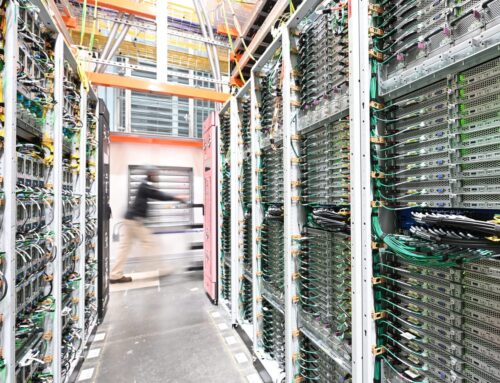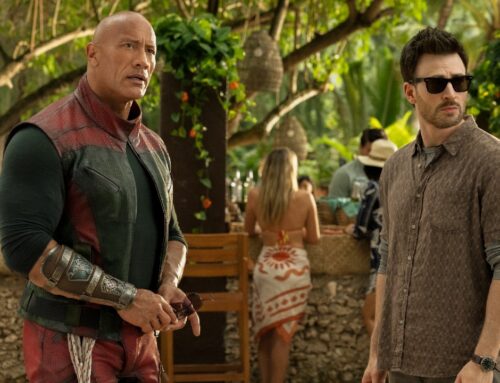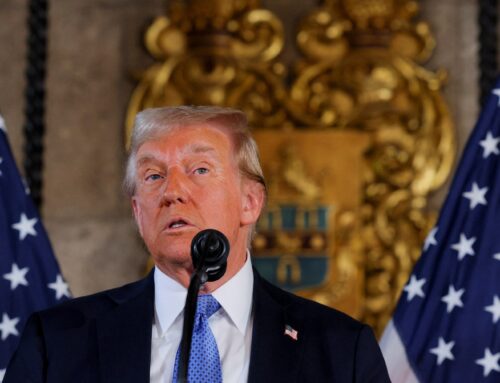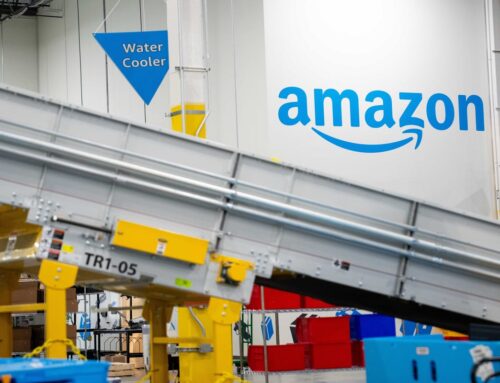Issues of the Environment: ‘Buy No Things Ann Arbor’ encourages more free exchange of services and used goods
December 18, 2024
Overview
- “Buy No Things Ann Arbor” is a regional group inspired by the global Buy Nothing movement. It is a local gift economy that fosters community through the free sharing of goods, skills, and services. During the holidays, it provides an alternative to consumerism by connecting neighbors to exchange holiday decorations, gifts, and hosting essentials, creating a season focused on generosity, sustainability, and meaningful connections
- How It Works: “Buy No Things Ann Arbor” operates as a hyper-local, Facebook-based community where members post items they want to give away, request things they need, or offer skills and services for free. Members can connect directly for pick-ups or drop-offs, fostering trust and resource-sharing within the neighborhood. For example, a member recently requested holiday decorations for a festive family dinner, and a neighbor provided gently used ornaments and string lights they no longer needed, ensuring a joyful celebration without additional expense or waste.
- Beyond physical goods, members often share experiences, organize events, and provide mutual aid, such as teaching classes or repairing items for others. This creates stronger community ties and aligns with broader goals, like Ann Arbor’s “circular economy” efforts, which prioritize reuse and sharing over disposal.
- “Buy No Things Ann Arbor” is not officially affiliated with the global “Buy Nothing Project” but operates in a similar spirit. The global movement focuses on creating hyper-local gift economies where members freely give and receive goods and services, fostering community and reducing waste. While the Ann Arbor group functions independently, it aligns with the principles of the Buy Nothing ethos, such as sharing items without monetary exchange and building connections among neighbors.
- Daniel Grenzicki has been moderating the “Buy No Things Ann Arbor” Facebook group for several years. His role involves facilitating exchanges and fostering a sense of connection among members while encouraging sustainability and reduced consumerism. Specific examples include organizing swaps, skill-sharing classes like sourdough baking, and even car repair events, all aimed at creating stronger community bonds and minimizing waste. While the exact duration of his involvement isn’t specified, his leadership has been pivotal in establishing the group as a key resource in Ann Arbor. He says the group has to be self-regulating, and it relies on people to flag posts that can be problematic because there can be hundreds of posts a day, and the threads average about 700 comments daily. The basic rules are to be kind, safe, respectful, and everything must be free. In addition to diverting items from the landfill or saving folks a trip to donate to a thrift shop, the group is excellent at connecting people to resources to meet their needs.
Transcription
David Fair: This is 89 one WEMU, and with each passing day, we’re moving closer to the holidays. Christmas and Hanukkah begin a week from today, and Kwanzaa starts the day after. Gifts are going to be exchanged, and the amount of waste produced will be more than at any other time of the year. I’m David Fair, and welcome to this week’s Issues of the Environment. Consumerism is rampant, and, in fact, sales records were set on Black Friday and Cyber Monday this year. Now, all of these gifts we’re going to exchange will include paper, cardboard, plastic packaging–they’re all going to be shipped or transported expending fuel and creating greenhouse gas emissions. There is an environmental consequence to the holiday season. Well, there is a local and growing online community that believes it can be part of the solution. It’s called Buy No Things Ann Arbor. It is a Facebook group boasting nearly 25,000 members. And it’s moderated by our guest, Daniel Grenzicki. Thanks for the time today, Daniel! I appreciate it!
Daniel Grenzicki: Thank you, Dave!
David Fair: What exactly is Buy No Things Ann Arbor? Because buying nothing seems almost impossible.
Daniel Grenzicki: Well, sure. It’s a Facebook group, and anyone is welcome to join. There’s a few questionnaires to get through. And I guess, at its core, it’s kind of just like a community web forum or Facebook group for people to kind of post asks or also post like donations or gifts that they can give to the community or to other people. People can volunteer their time or kind of use it as a platform to connect with people in the Ann Arbor and greater surrounding area to not buy so much stuff and kind of share and use that we have already.
David Fair: What is it that brought you to thinking that buying less stuff–less consumerism–was a net positive?
Daniel Grenzicki: I don’t know. I guess it’s kind of just everything around us. It seems like we’re kind of always being inundates to buy, buy, buy. And we always need the newest and best thing. And I think when you look around your neighborhood or in your community, sometimes I would see things on the side of the road or it’s like, “Oh, I just bought that,” or somebody is like getting rid of something. And so, it seems like maybe a first step to replace or buying a new thing is to see if somebody else is already getting rid of something that’s just as good, if not maybe better.
David Fair: One person’s trash is another person’s treasure, right?
Daniel Grenzicki: Yeah, absolutely!
David Fair: The American economy, though, it’s, as you mentioned, based on consumerism. It’s all about the purchase of goods and services. Among other things with this particular group, are you trying to win a change in attitudes and priorities?
Daniel Grenzicki: Yeah. I think that it, at its core, is to kind of bring people together and show that we can kind of do more together outside of just having to go spend all our money and kind of get the foot off our back, so to speak.
David Fair: Our Issues of the Environment conversation with Buy No Things Ann Arbor moderator Daniel Grenzicki continues on 89 one WEMU. Now, at the outset, I mentioned product packaging and transportation of goods is a major environmental challenge. Explain the process of Buy No Things in our community and how that makes a difference in how we steward our environment.
Daniel Grenzicki: It diverts anything that usually would be either trash or possibly donated and have to be driven to the thrift store or wherever you donate them to just be able to be kind of left on your porch or dropped off or someone else to pick up and kind of deletes a step or prevents something maybe from going to the landfill or or delayed from going to a landfill for a little bit longer. It gets us more use.
David Fair: What are some of the “treasures,” as it were, that you’ve picked up over the years of doing this?
Daniel Grenzicki: Oh my goodness! It’s a long list! I’ve found…what have I gotten? I’ve gotten bicycles. I don’t know, all kinds of household knickknacks and some cooking utensils. I know somebody gave away a car once that had just been collecting dust. There’s all kinds of things. I know people volunteer their time to have breadmaking classes. It’s really kind of limitless what people have thought of with that group and what I’ve been able to find for myself and others.
David Fair: Are you in particular interested in kind of the back story of something you might picked up? Like, if you pick up a knickknack for the house and it has a family history with someone else, are you kind of interested in finding out about that and actually spending time with another member of the community talking about these things?
Daniel Grenzicki: Yeah! And I think that’s one of the cool things about the group is that people can post for asks and gifts, but people also post appreciation posts, or they’ll post like, “Oh, I got this item! This is where it’s at now! And this is what I’m using!” And I think it’s cool to see people kind of follow up with each other and it kind of makes others feel more connected.
David Fair: So, during this holiday season, Daniel, people are not only trading items that can be used for gift giving, but I would imagine all of the seasonal lights and some holiday home decor. And again, it’s all free and potentially keeps these items out of the landfill, at least for a while longer. Is holiday season a big time for Buy No Things Ann Arbor?
Daniel Grenzicki: I haven’t seen a large uptick in posts. I want to say it’s usually about 100-150 posts a day.
David Fair: That sounds like a lot!
Daniel Grenzicki: Yeah! But items do definitely become more seasonal as we get closer. And maybe so even after the season or the holidays over, people will be clearing out their closet and deciding decorations they might not want for next year. It might be a good time to get those.
David Fair: Now I know this is a Facebook group, and that you are an individual moderator. But if you follow municipalities and recycling centers, they love to weigh things in tonnage. Do you have any idea of the volume of items given away, exchanged or traded among the nearly 25,000 members of Buy No Things Ann Arbor and how much it might be keeping out of landfills?
Daniel Grenzicki: I could not put a number on it. It would have to be in the thousands of pounds. You know, I couldn’t imagine. I’ve been doing this for, I say 3 or 4 years now. So, it’s steadily growing the whole time. So, it’s definitely a big number!
David Fair: Yeah. If you have over 100 posts per day, then you’re certainly keeping a lot out in quick fashion. Once again, we’re talking with Daniel Grenzicki from the online community Buy No Things Ann Arbor on WEMU’s Issues of the Environment. I want to touch back on something you mentioned, and it was about creating community. Beyond reducing the consumerism and providing environmental benefits, creating that community is at the heart of what you do. How has your personal community expanded as a result of your involvement in Buy No Things?
Daniel Grenzicki: Oh man! I’ve met…I mean, virtually, I guess. I’ve met a lot of moderators of other local groups just through coordinating the group. I’ve also just like made friends through the group, picking up items sometimes to kind of remain in contact and meet up. I would say that it’s also just gotten me out in my community and kind of gotten me to explore because I started this during the pandemic when most people are trying to avoid each other and kind of trying to find an excuse to get out and explore Ann Arbor and get into some more like unique corners and neighborhoods of Ann Arbor and Ypsi that I might not have otherwise found. So, in just doing that, I think it’s been kind of interesting geographically to explore the area.
David Fair: And what has been your favorite discovery?
Daniel Grenzicki: There are some just really hidden pocket, one-way streets on the old West Side that I didn’t know were there that have some really cool old houses that I would have otherwise never found because they’re kind of tucked away back there. And it’s been kind of cool to ride my bike and walk around over and explore the area over there.
David Fair: It is fun to find things that are essentially hidden in plain sight and expand our view of the community in which we reside. I do want to ask. Are there any targeted efforts at Buy No Things Ann Arbor by utilizing the expertise and generosity of the members to help the traditionally underserved or marginalized portions of our community?
Daniel Grenzicki: There’s no specific targeted effort. On the Facebook group, I’ve linked affiliated groups like there’s Huron Valley Mutual Aid Group and various other groups. But I think also within the group, when people do posts like, “Hey, I need this X, Y or Z,” or “This has happened and this is where I’m at,” there’s a pretty strong group of people within the Buy No Things community that reach out that are either like social workers or some sort of community outreach person that help connect them with resources in the area.
David Fair: Putting your moderator hat on, what would you like for Christmas for Buy No Things Ann Arbor?
Daniel Grenzicki: Hmm, I would just like to see it continue and grow. I think it already has such a big impact. And I guess my biggest wish was that people still continue to self-moderate because I do check on the group maybe once or twice a week. And I add members to it almost daily, but I don’t have time to check every single post to make sure people aren’t bullying or they’re posting something they shouldn’t. So, when people do see something, kind of flag it. And then, I can get to it sooner rather than have to wait for either Facebook to catch it or it comes to me at some point later.
David Fair: With all of the news of the day, sometimes it’s easy to believe that there is more bad than good. Through moderating this site, have you found that there’s much more good than bad?
Daniel Grenzicki: There’s so much more good than bad. I would say probably less than a percent of the posts are malicious or bullying or people on a witch hunt after somebody else. 99% of it is people just supporting each other and being good neighbors.
David Fair: Daniel, I really appreciate you taking the time to talk with us today and sharing your perspective!
Daniel Grenzicki: Thank you, David!
David Fair: That is Daniel Grenzicki. He is moderator of the online Facebook group Buy No Things Ann Arbor. And he’s been our guest on Issues of the Environment. To find out more about the group and how to become a part of it, simply hop on over to our website at wemu.org. And we’ll get you connected. Issues of the Environment is produced in partnership with the office of the Washtenaw County Water Resources Commissioner. And you hear it every Wednesday. I’m David Fair, and this is your community NPR station, 89 one WEMU FM, Ypsilanti.
Non-commercial, fact based reporting is made possible by your financial support. Make your donation to WEMU today to keep your community NPR station thriving.
Like 89.1 WEMU on Facebook and follow us on Twitter
Contact WEMU News at 734.487.3363 or email us at studio@wemu.org
Search
RECENT PRESS RELEASES
Related Post




